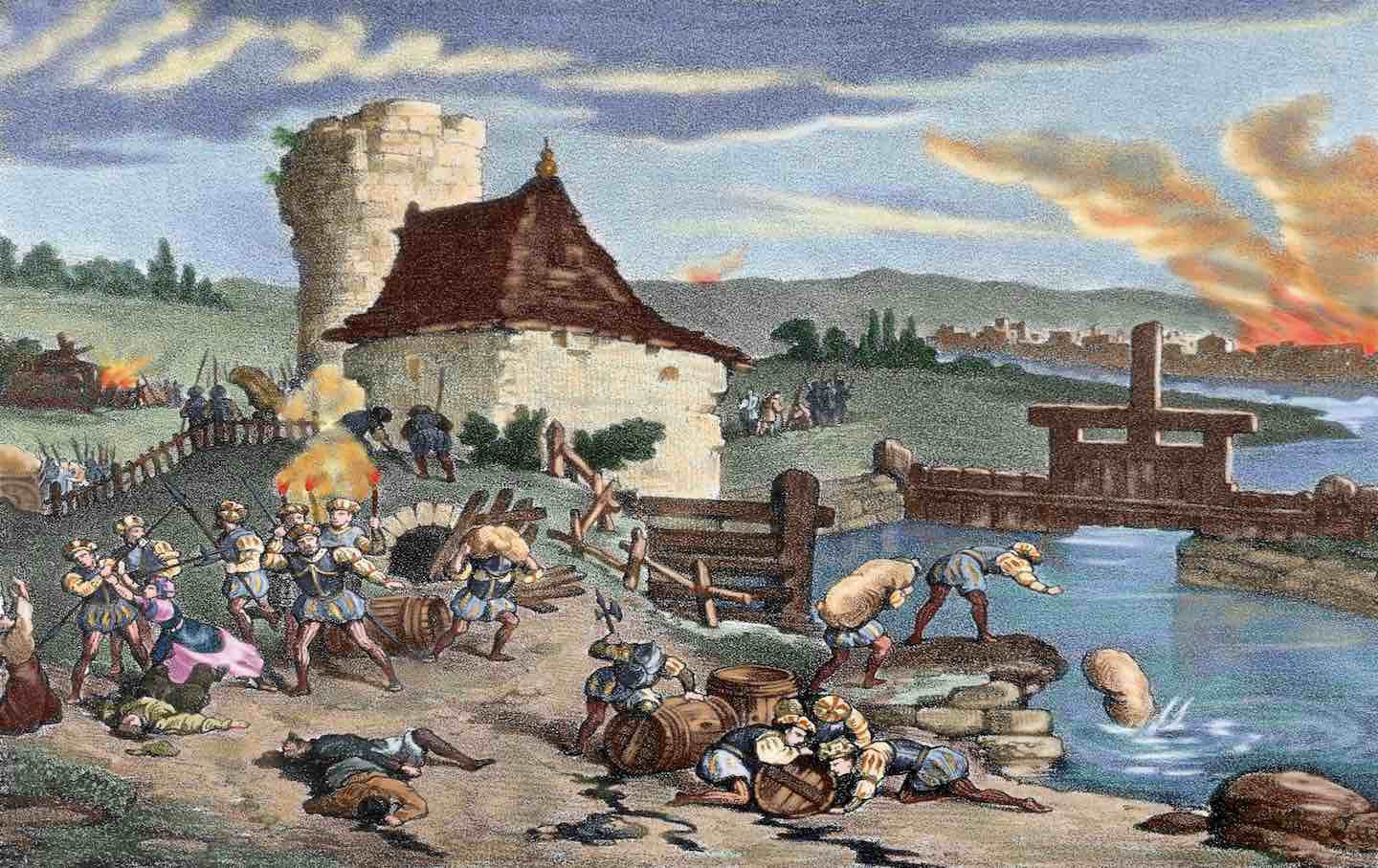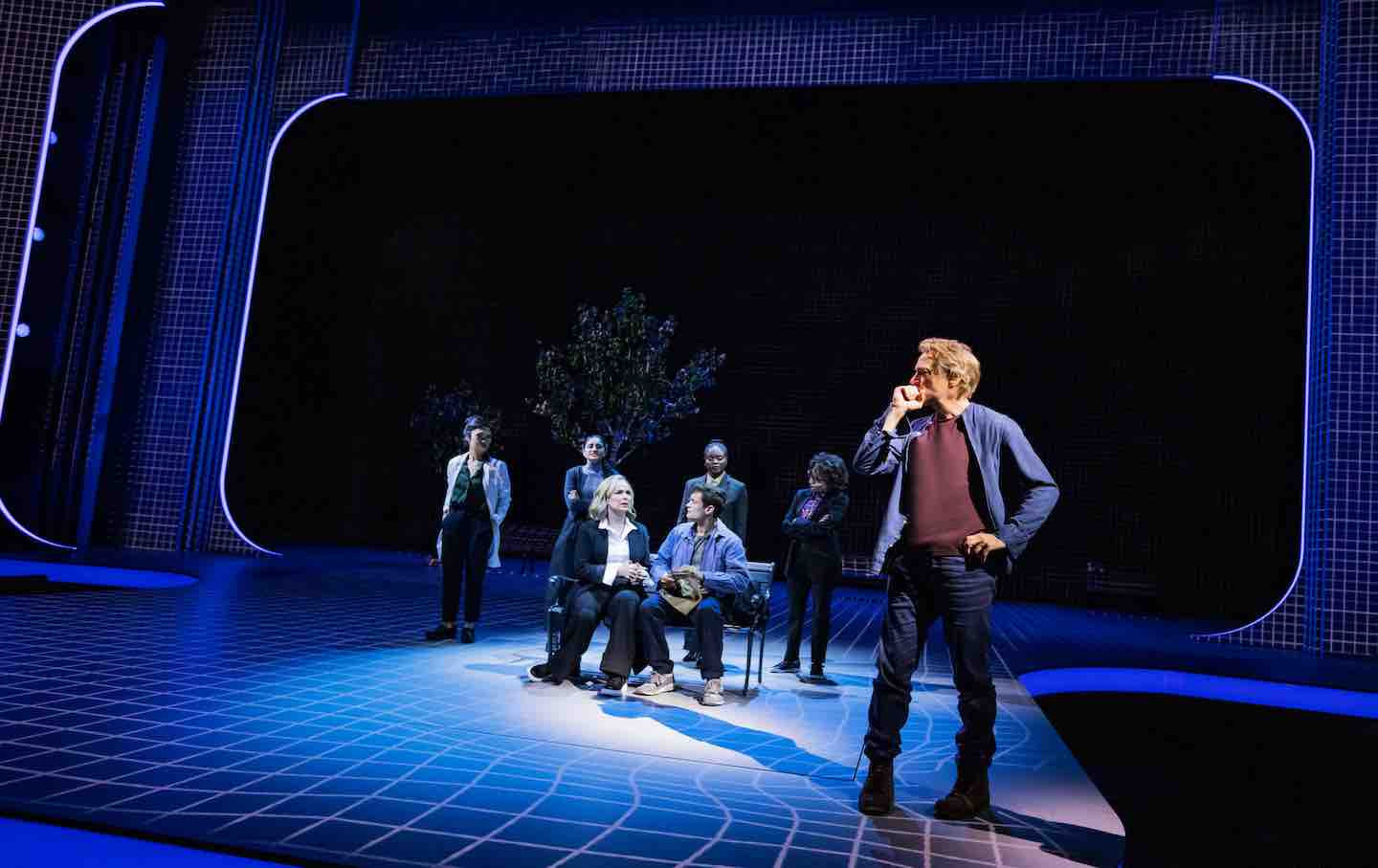An Inn for the Coven
Witch hazel going wild along the
walkway. And all the spots to sit
and read our spell books. And all
the ways to keep them out. Two
black cats and a beaver who eats
carrots all day. Every room an
upper room even on the ground
floor. And bee boxes in the way
way back. And the sweet man who
comes to keep them. All our loves
are witches too. Or warlocks. All
our children and all our children.
Welcome. Water running in the
brook. Clean enough to drink from
our hands. And seven sources. And
a deep well. All for us and all for
those we bring over. Four swings in
the branches. A library in every
hollow. And birds. So many birds
we stop trying to name them. We’ll
just let them be with their own
names. Maybe they’ll tell us.
Porches. Tomatoes in the summer
and pumpkins in the fall. And curry
leaves and curry blossoms. Jasmine
in the rooms at night. All loves
protected. All of us playing
cribbage on the lawn.
(This poem originally appeared in You Are Here: Poetry in the Natural World.)
We cannot back down
We now confront a second Trump presidency.
There’s not a moment to lose. We must harness our fears, our grief, and yes, our anger, to resist the dangerous policies Donald Trump will unleash on our country. We rededicate ourselves to our role as journalists and writers of principle and conscience.
Today, we also steel ourselves for the fight ahead. It will demand a fearless spirit, an informed mind, wise analysis, and humane resistance. We face the enactment of Project 2025, a far-right supreme court, political authoritarianism, increasing inequality and record homelessness, a looming climate crisis, and conflicts abroad. The Nation will expose and propose, nurture investigative reporting, and stand together as a community to keep hope and possibility alive. The Nation’s work will continue—as it has in good and not-so-good times—to develop alternative ideas and visions, to deepen our mission of truth-telling and deep reporting, and to further solidarity in a nation divided.
Armed with a remarkable 160 years of bold, independent journalism, our mandate today remains the same as when abolitionists first founded The Nation—to uphold the principles of democracy and freedom, serve as a beacon through the darkest days of resistance, and to envision and struggle for a brighter future.
The day is dark, the forces arrayed are tenacious, but as the late Nation editorial board member Toni Morrison wrote “No! This is precisely the time when artists go to work. There is no time for despair, no place for self-pity, no need for silence, no room for fear. We speak, we write, we do language. That is how civilizations heal.”
I urge you to stand with The Nation and donate today.
Onwards,
Katrina vanden Heuvel
Editorial Director and Publisher, The Nation
Gabrielle Calvocoressi is the author of The Last Time I Saw Amelia Earhart, Apocalyptic Swing (a finalist for the Los Angeles Times Book Prize), and Rocket Fantastic, winner of the Audre Lorde Award for Lesbian Poetry. Calvocoressi is the recipient of numerous awards and fellowships, including a Stegner Fellowship and Jones Lectureship from Stanford University; a Rona Jaffe Woman Writer’s Award; a Lannan Foundation residency in Marfa, Texas; the Bernard F. Conners Prize from the Paris Review; and a residency from the Civitella di Ranieri Foundation, among others. Calvocoressi’s poems have been published or are forthcoming in numerous magazines and journals including the New York Times, Poetry, the Kenyon Review, Tin House, and the New Yorker. Calvocoressi teaches at UNC Chapel Hill and lives in Old East Durham, North Carolina, where joy, compassion, and social justice are at the center of their personal and poetic practice. Calvocoressi was the Beatrice Shepherd Blane Fellow at the Harvard-Radcliffe Institute for 2022–2023.








